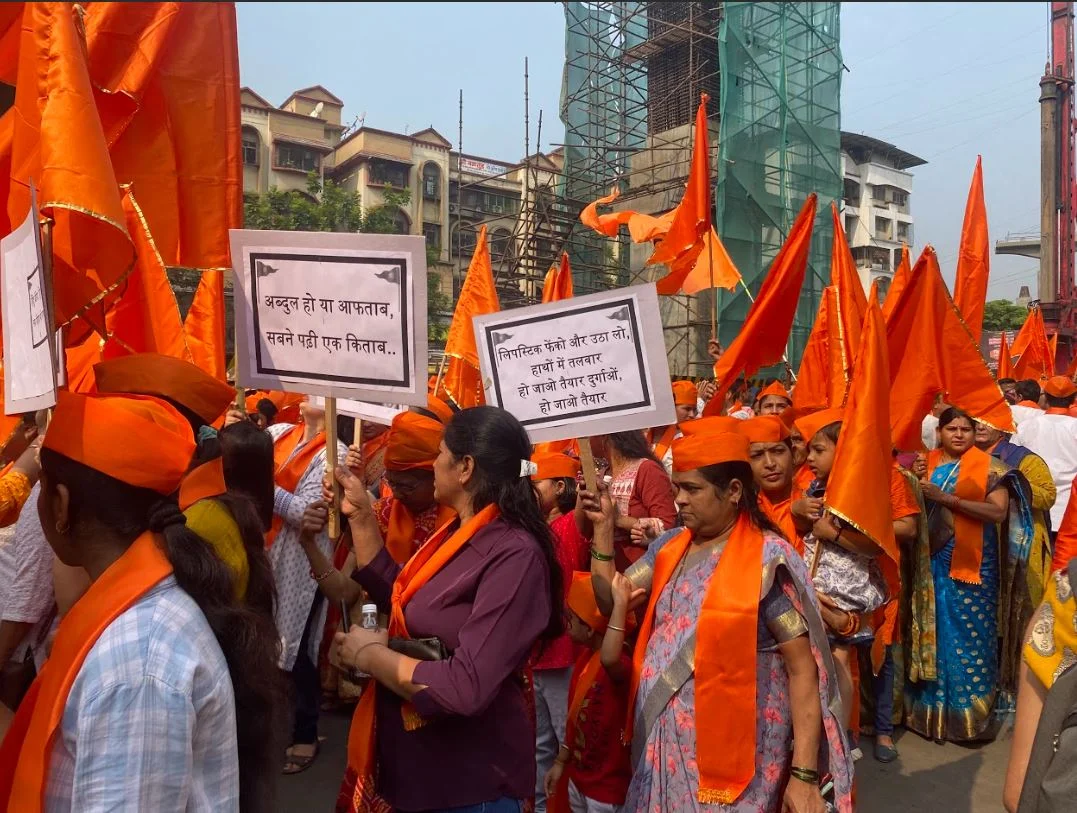India, also known as the largest ‘Democracy’, is witnessing another wave of Saffron vigilantism against religious minorities.
The Rashtriya Swayamsevak Sangh (RSS) and Bhartiya Janata Party (BJP) led government in India has been on the course of dividing India into religious lines. The phenomenon of hatred towards religious minorities, especially Muslims, is not entirely of the 21st century. The founding principle of the RSS by its founder, Keshav Baliram Hedgewar, was based on the “Hindutva” ideology. The aim of making India a Hindu Rashtra is the basis of Hindutva ideology and RSS since its inception.
Despite the fact, that the idea of fraternity has been included in the preamble of the Indian Constitution at BR Ambedkar’s insistence and the Articles 25 and 26 of the Indian Constitution establish to practice religion as a fundamental right, the Hindutva-led religious bigotry in India is recently being witnessed at unprecedented levels. Since Mr Narendra Modi has assumed office as Prime Minister of India in 2014, the country has witnessed increased discrimination against religious minorities. Muslims have remained the most affected religious minority in India; from cow vigilantes, boycotting Muslim businesses, vandalizing mosques to the recent ‘anti-hijab’ protests in Karnataka, the Muslims inside India are facing oppression at the hands of the Hindutva-led ideological government.
The recent vigilante incidents for Muslims are like unwanted nostalgia of Congress Ministries of 1937, under British rule in the Sub-continent.
But, what makes the recent Karnataka saffron vigilante incident even more sinister is the use of youth, mostly high-school-aged are becoming radicalized by the RSS-BJP led government. The saffron shawl worn by the high school girls in Karnataka’s Kundapur area protesting against hijab is evident of the growing radicalization of the Indian youth. These young girls were seen shouting slogans “Jai Shree Ram” in favor of the RSS-BJP led rules over the dress code of Muslim women students in India. Rather than standing by the side of their colleagues in solidarity, as a ‘Democratic’ nation would do, the girls are ascribing to the discriminatory actions based on religious bigotry.
According to an article published in New York Times, the Hindu extremism is being pushed ever more into the mainstream media. India is pushing itself towards a Hindu identity rather than a secular one. The Indian claims of being a pluralist society are now itself under threat of being plural. The open calls for killings of “two-three million Muslims” by Yati Narsinghanand in a Hindu pilgrimage event should ring the alarm bells for the world community.
The increasing use of hate speech against Muslims in the mainstream media is evidence of either of the two things pertaining to the Modi government: acquiescence or support.
The recent saffron vigilantism in Karnataka is just the tip of the iceberg. With the might of all government machinery, against the mighty norms of ‘Democracy’, BJP has brought a new reign of terror over religious minorities. Meanwhile, there have been dozens of reports on the impending genocide in India against the Muslims, Modi continues to look the other way. Whereas the world remains in shock over the Karnataka incident, there is another aspect to this discriminatory event, which is being neglected by the world media.
The Karnataka incident is not only a religious bigotry, but also an attack on the freedom of women rights.
This raises certain questions over the uneven handedness of the United States and the international community in dealing with India and Afghanistan. Now, that the religious persecution of Muslims in India has also taken the shape of infringing women rights, will the US and the international community be more proactive against India as compared to the interim government of Afghanistan? Or corporate and strategic interest will triumph over the highly celebrated democratic ideals of the international rules-based system?




![Ukrainian and Russian flags with soldier silhouettes representing ongoing conflict. [Image via Atlantic Council].](https://southasiatimes.org/wp-content/uploads/2026/02/2022-02-09T000000Z_1319661209_MT1NURPHO000HXCNME_RTRMADP_3_UKRAINE-CONFLICT-STOCK-PICTURES-scaled-e1661353077377.jpg)

